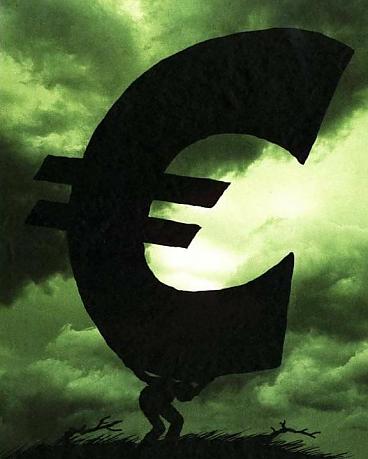Emile Roemer: Time for a Plan B for the Euro
Emile Roemer: Time for a Plan B for the Euro

European cooperation is a fine idea. But a line must be drawn through Brussels’ meddling and the further development of a European superstate, with its total freedom for big capital.
Early in December 1991 the leaders of ten European countries gathered in Maastricht and decided to make major changes to what was then the European Community. The Treaty of Maastricht established the European Union. Since then attempts have been made to put together in record tempo a full economic, monetary and political union.
The treaty canonises bald figures governing budgetary deficits and national debts. Countries allowing their policies to be ruled over by these figures are obliged to slash public spending, keep wages on a tight leash, and wring the neck of the postwar welfare state. The existing EU rules represent a straitjacket for countries wishing to conduct socially-minded policies.
EU must be transformed
The great majority of Dutch people want to see cooperation with other countries to our mutual advantage, but not to have our laws laid down for us. The SP agrees, which is why we want the EU to change both in direction and in tempo. The EU must be transformed. We want a new kind of cooperation, in which Brussels no longer plays the boss and the member states take control of their own budgets and their own policies, policies in which people are the focus and not bankers and multinationals.
 Cooperating to mutual advantage means that we tackle together the problems attendant upon labour migration. Half a million Dutch people are looking for work. Many workers from eastern Europe and elsewhere are being exploited by various tricks into working far from their families and for starvation wages. They generally live in old, poor districts, with far too many people sharing a badly maintained dwelling, resulting in all sorts of nuisance. And the state is losing an estimated half billion a year in taxes and social insurance premiums. The only winners are the firms and temporary employment agencies whose revenue model is based on exploitation.
Cooperating to mutual advantage means that we tackle together the problems attendant upon labour migration. Half a million Dutch people are looking for work. Many workers from eastern Europe and elsewhere are being exploited by various tricks into working far from their families and for starvation wages. They generally live in old, poor districts, with far too many people sharing a badly maintained dwelling, resulting in all sorts of nuisance. And the state is losing an estimated half billion a year in taxes and social insurance premiums. The only winners are the firms and temporary employment agencies whose revenue model is based on exploitation.
We need to end the race to the bottom, increase wages and tackle unemployment, in the interests of Dutch workers and those of workers from elsewhere in Europe.
A new Europe demands an alternative to the euro. It remains an insane adventure to force countries to coordinate their monetary systems while allowing the financial markets to operate in complete freedom. We were already saying at the time the Maastricht Treaty was signed that a single currency could work only as the culmination of a process of unification from below. Now we are being pressured into it from above. Far from being a binding force, the euro has turned out to be both divisive and a sledge hammer for the demolition of social and democratic rights.
European cooperation, yes. But we have to draw a thick, bold line through Brussels’ meddling and the surreptitious creep towards a European superstate with total freedom for big capital and ever less power for the people.
This article first appeared on 6th December, in the original Dutch, in the national daily Algemeen Dagblad. Emile Roemer is leader of the SP.
- See also:
- Europe
